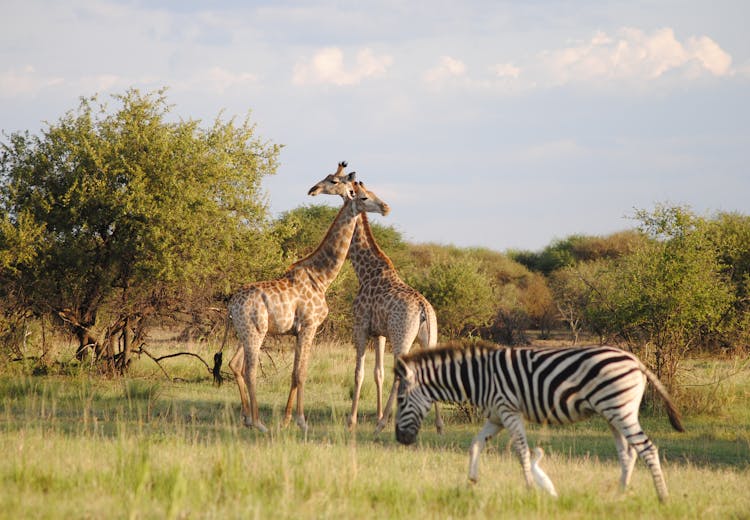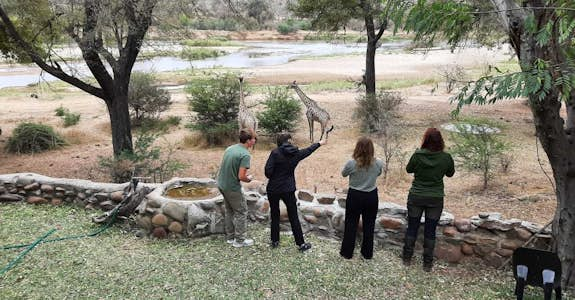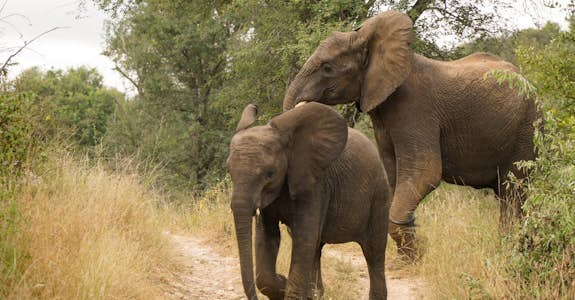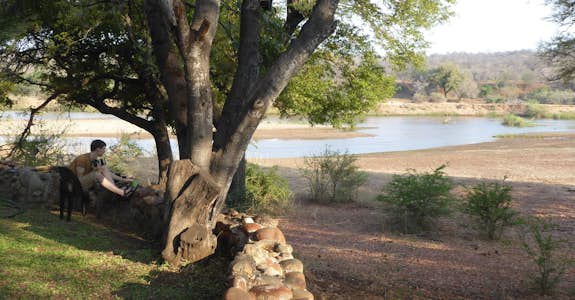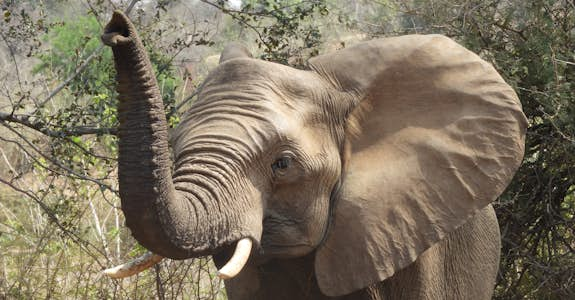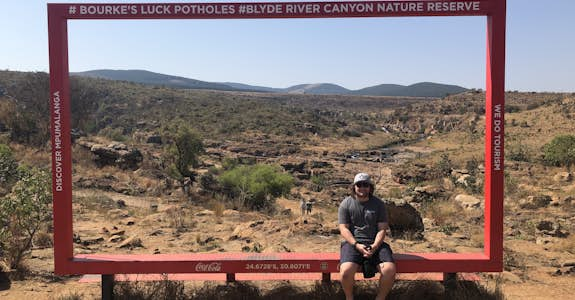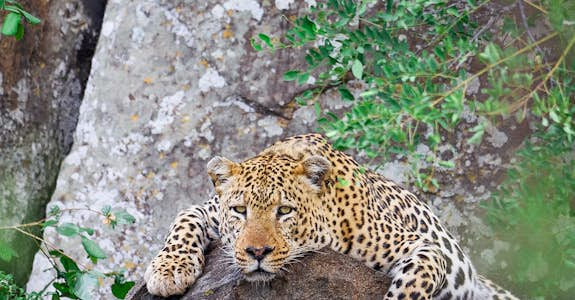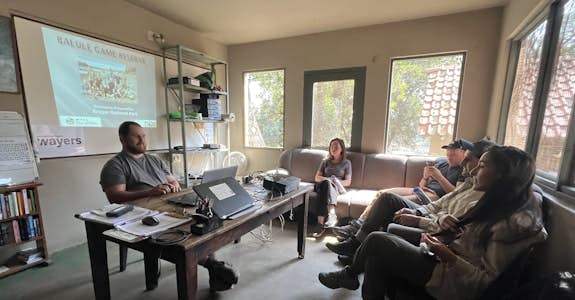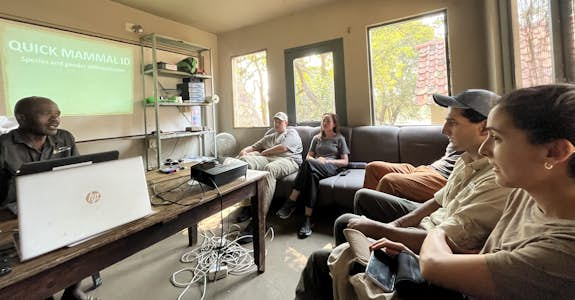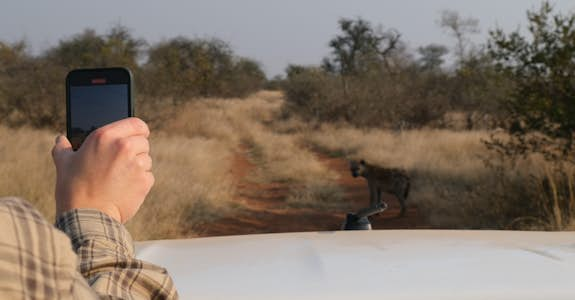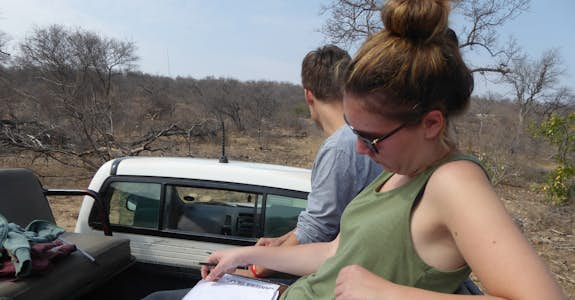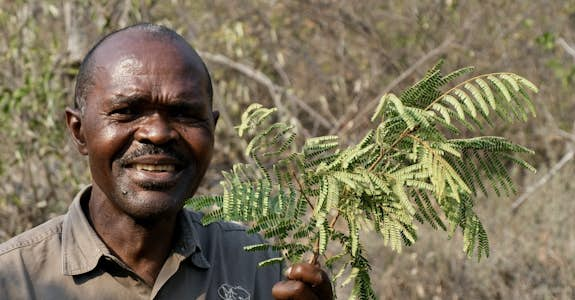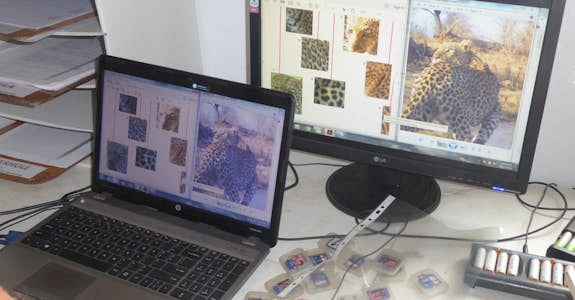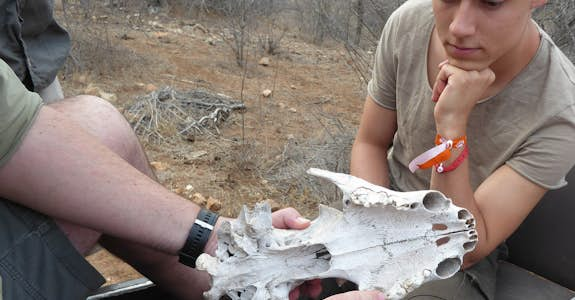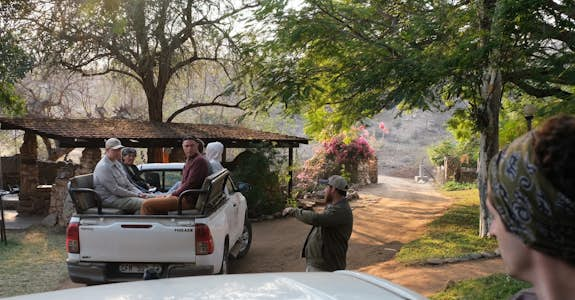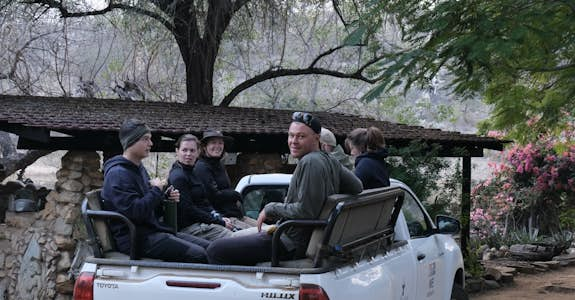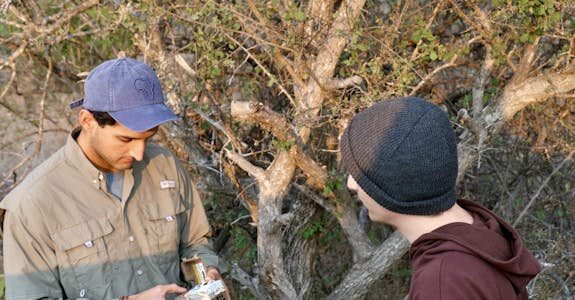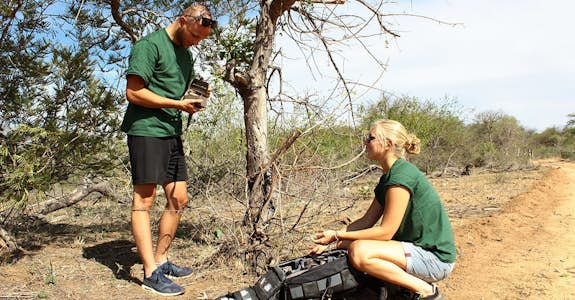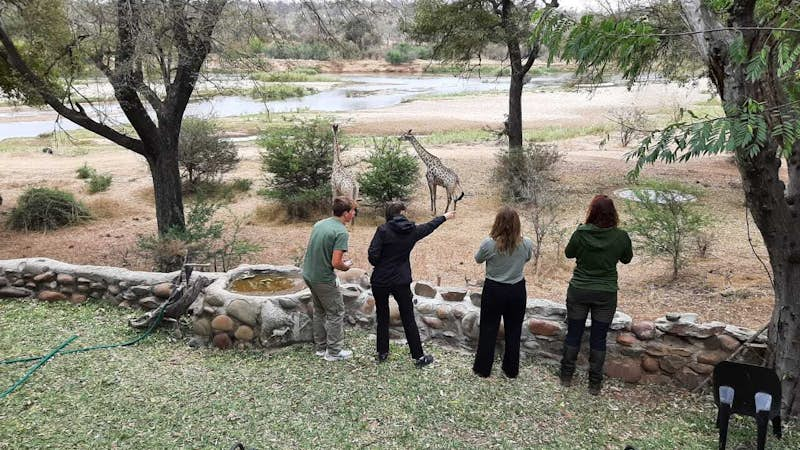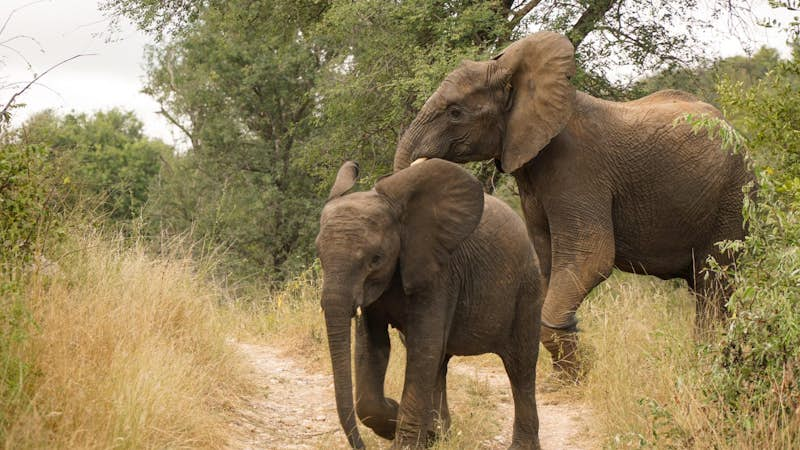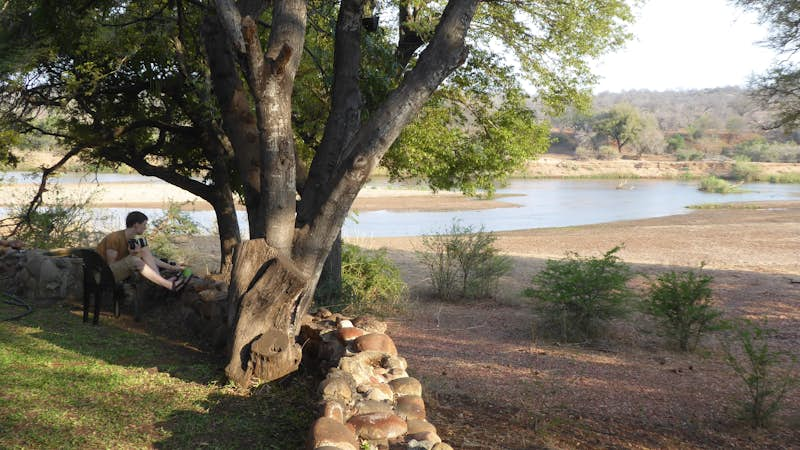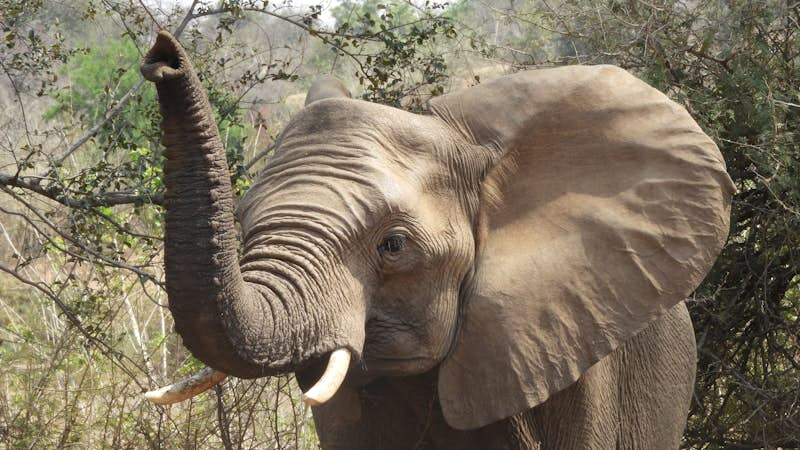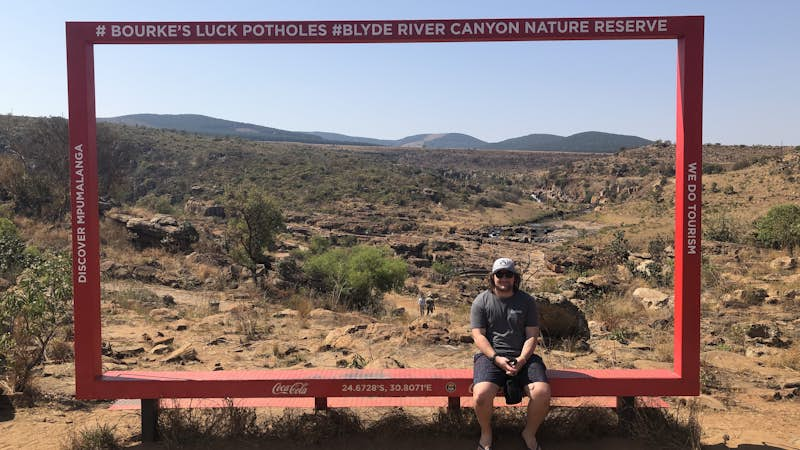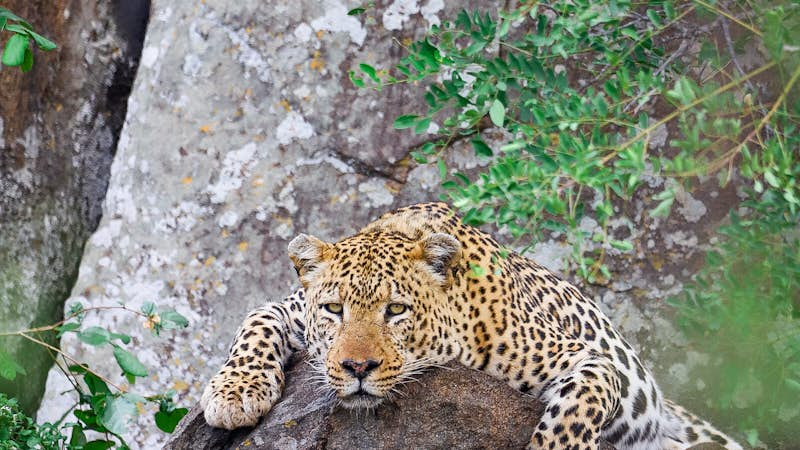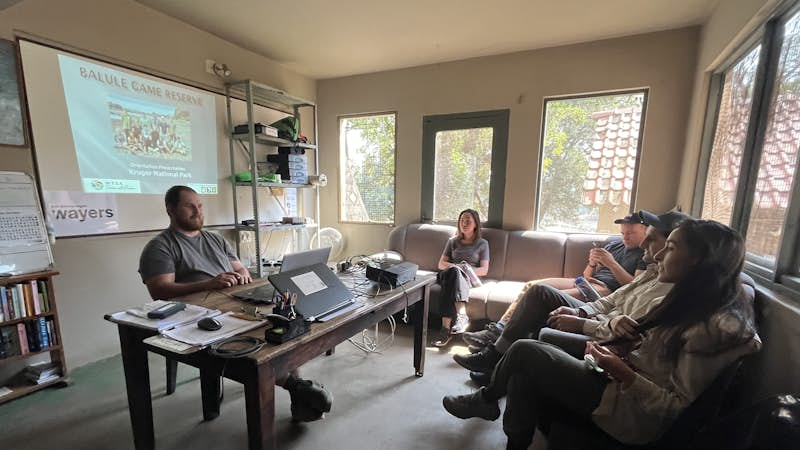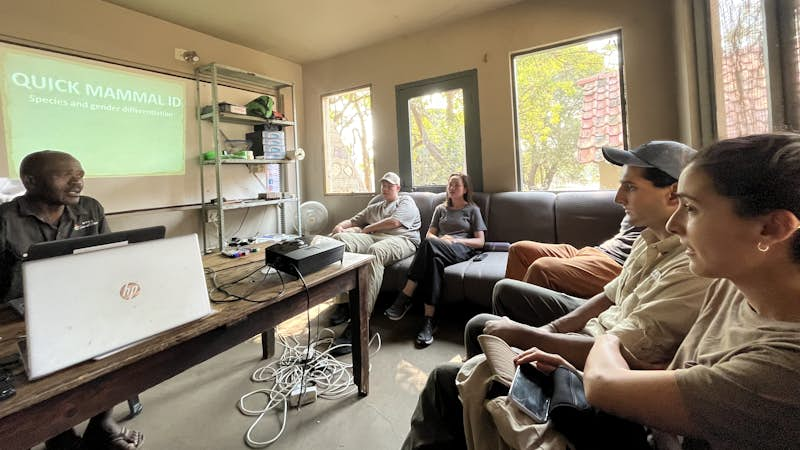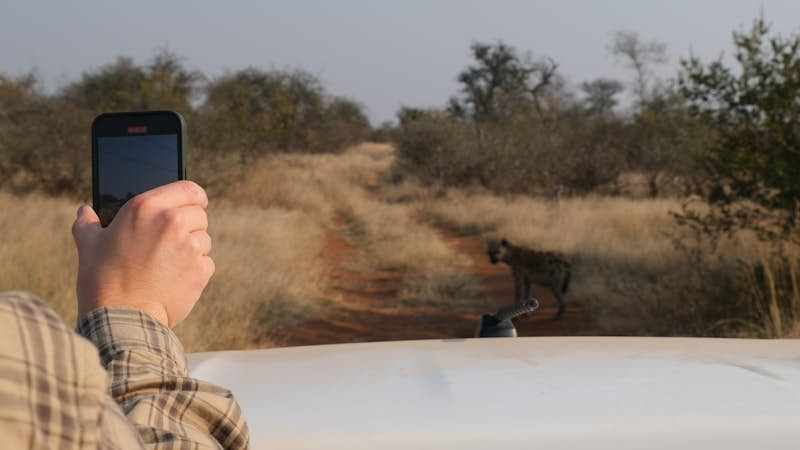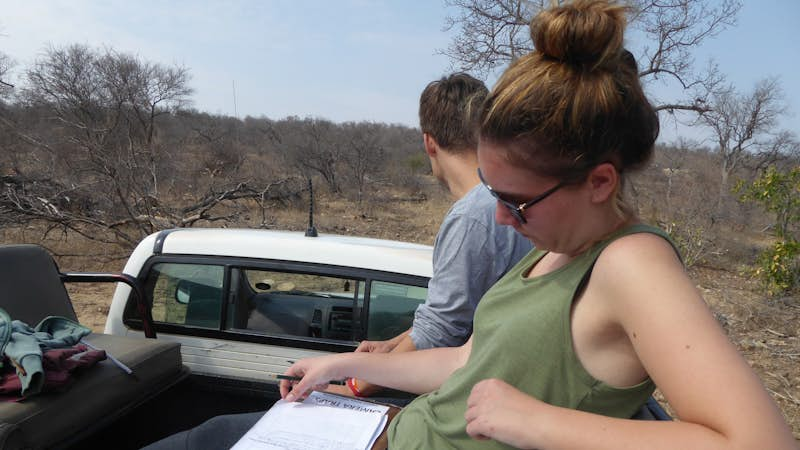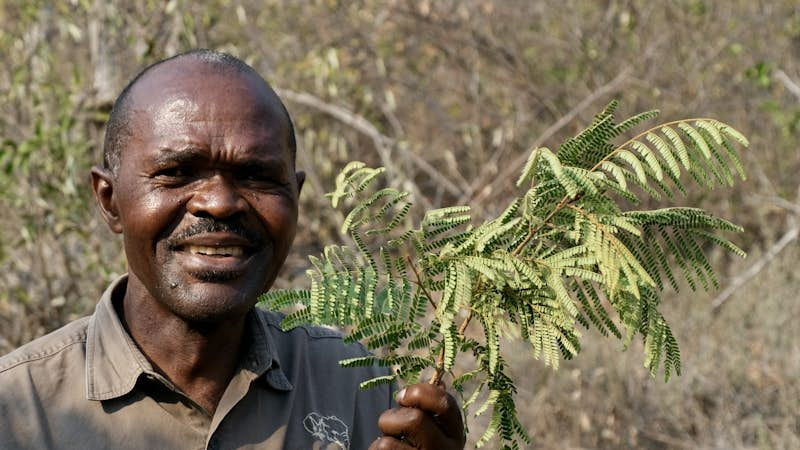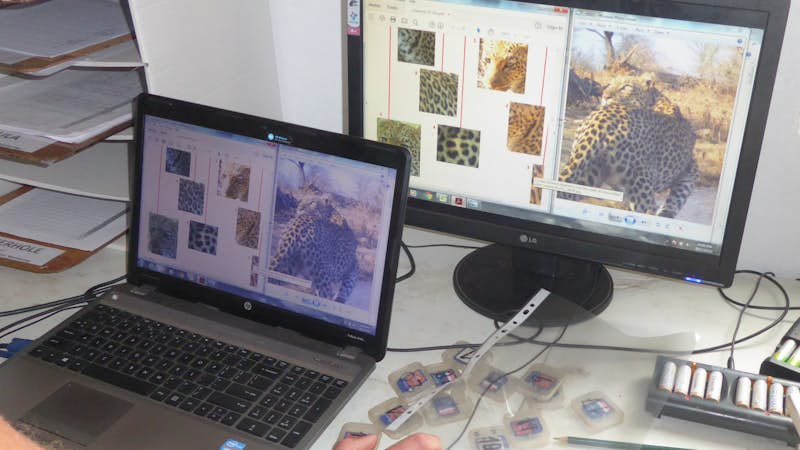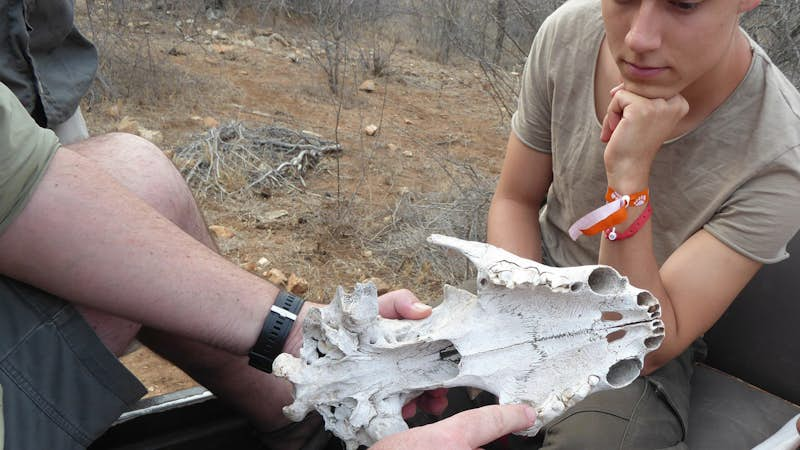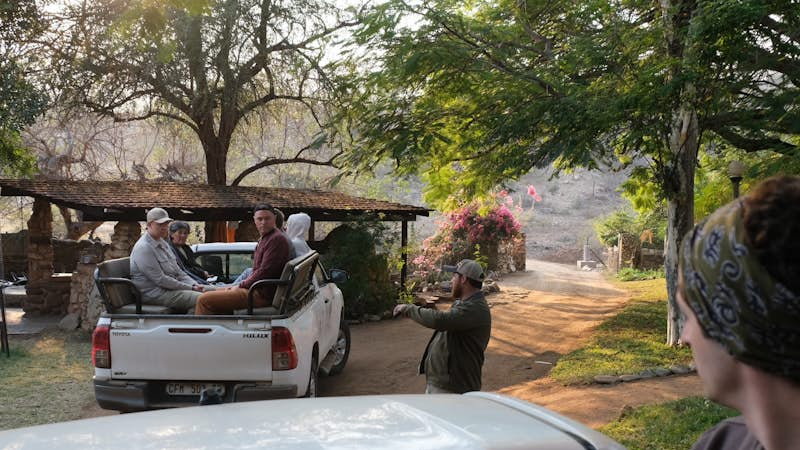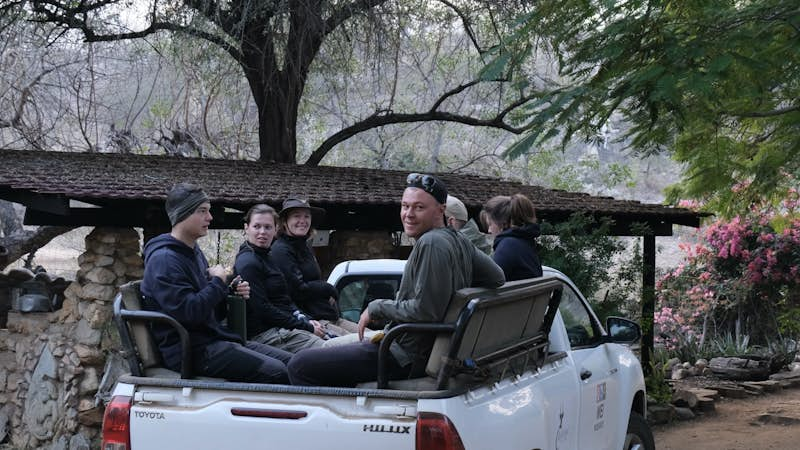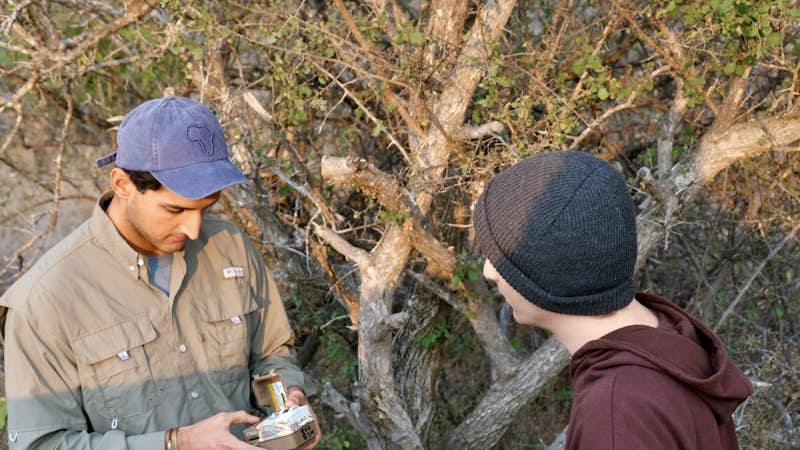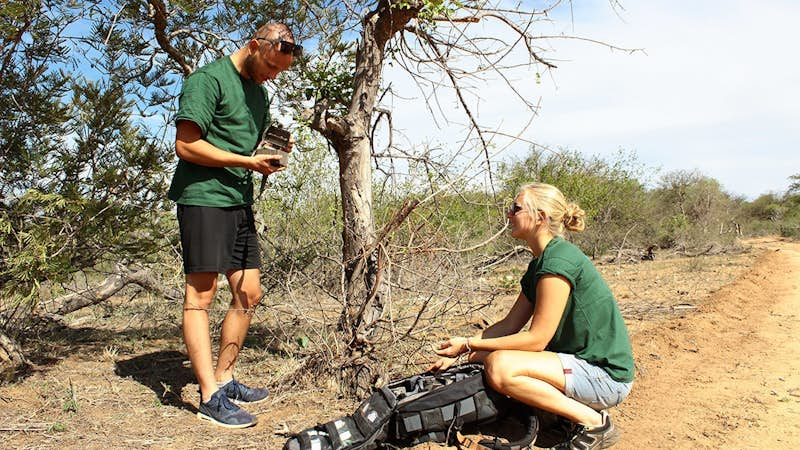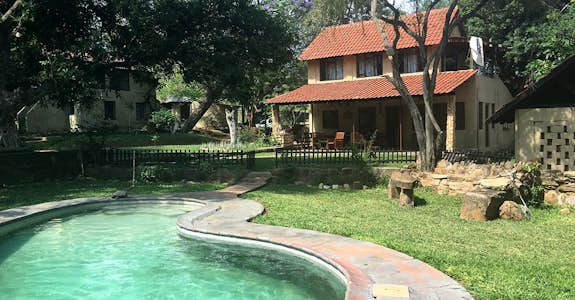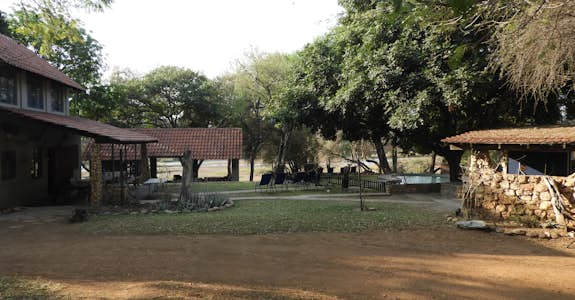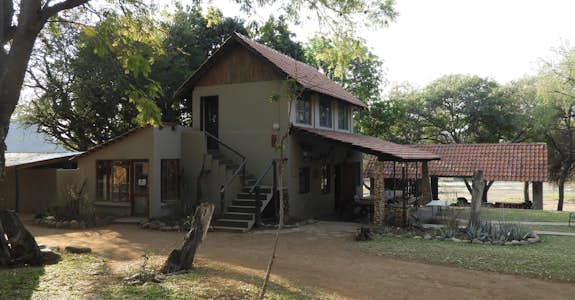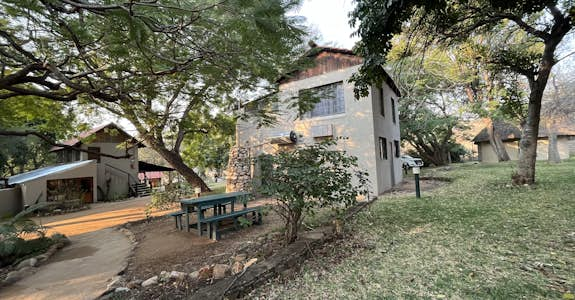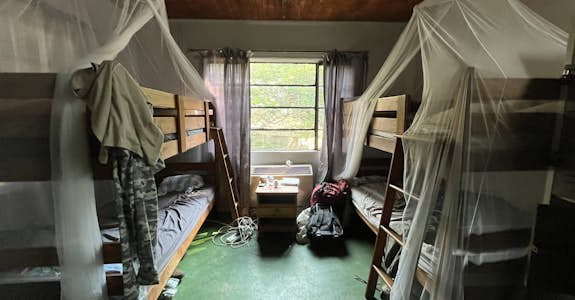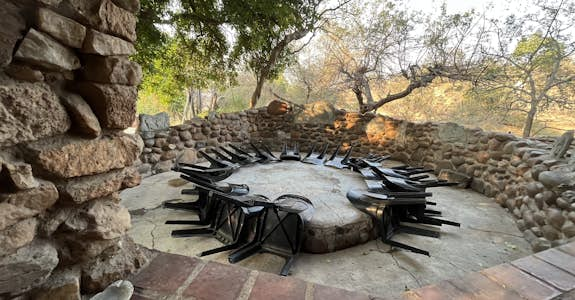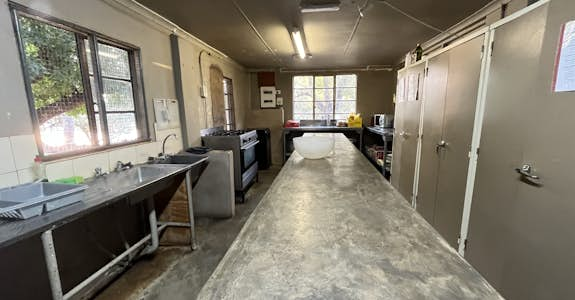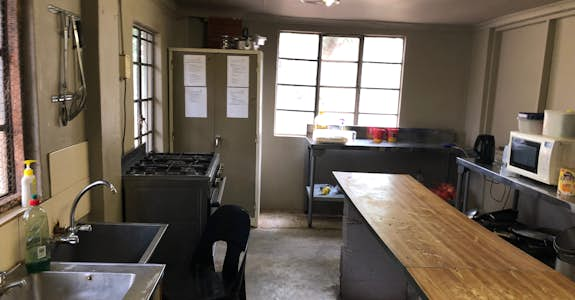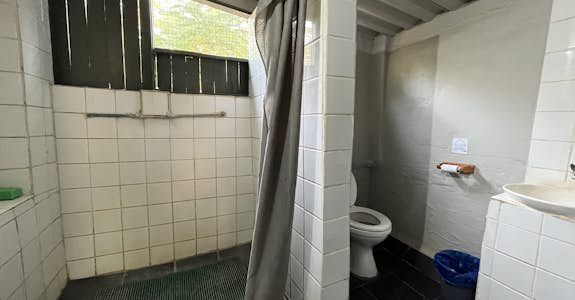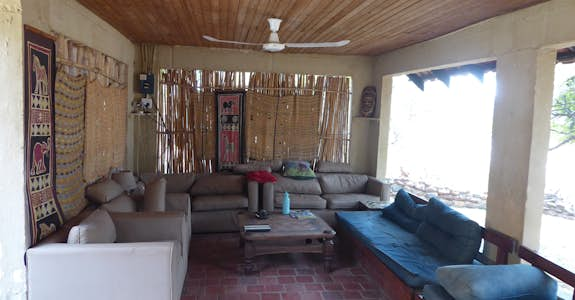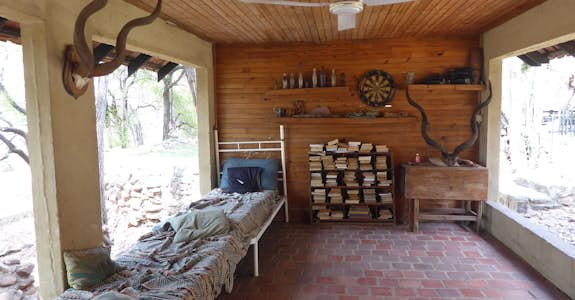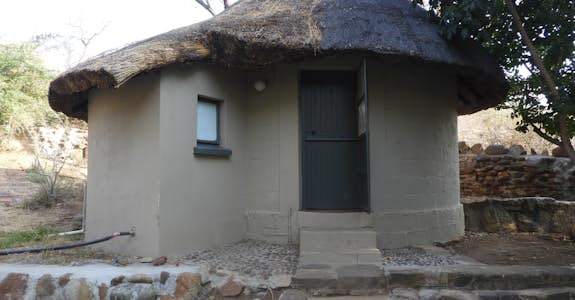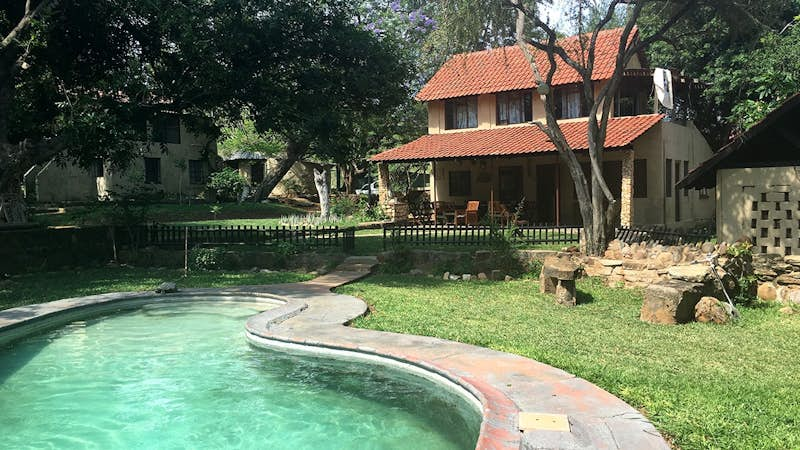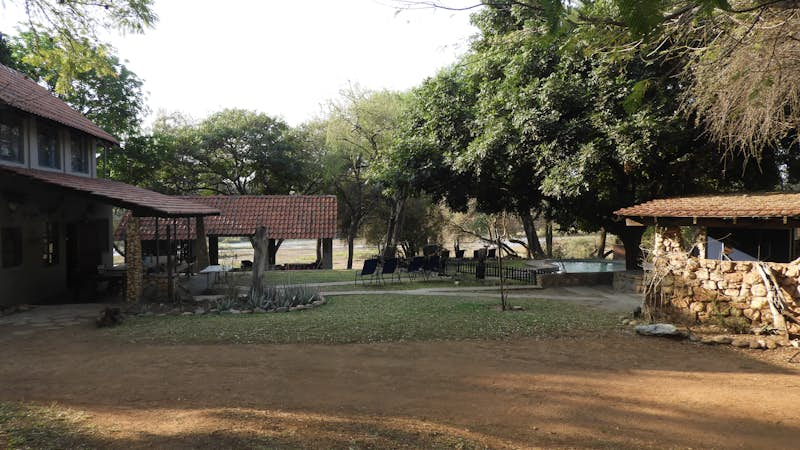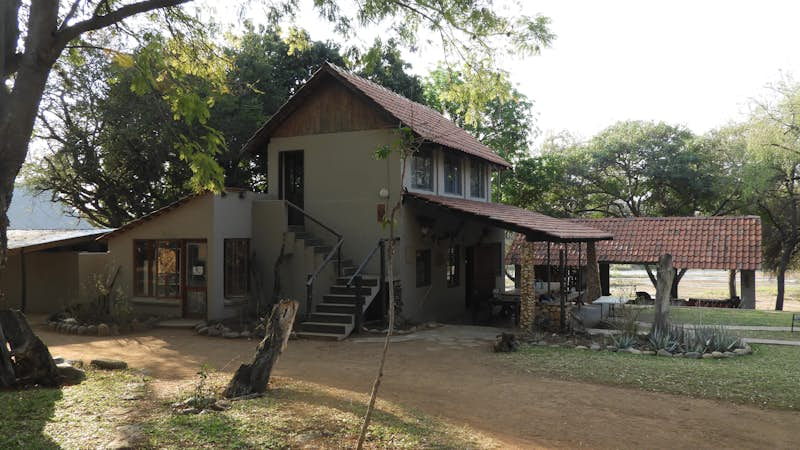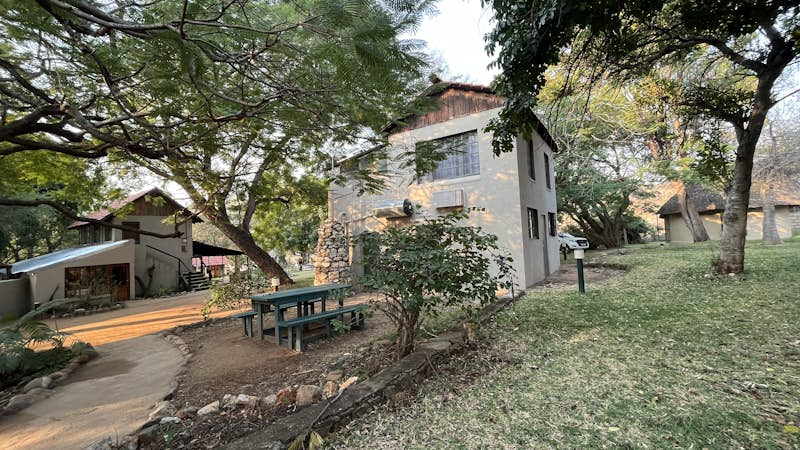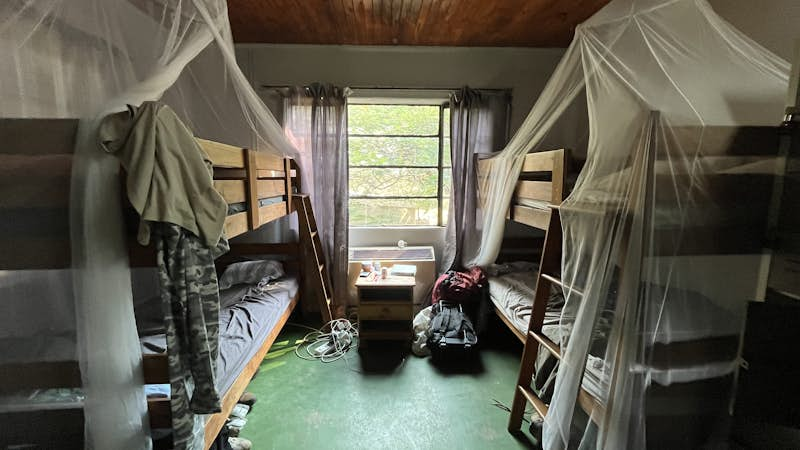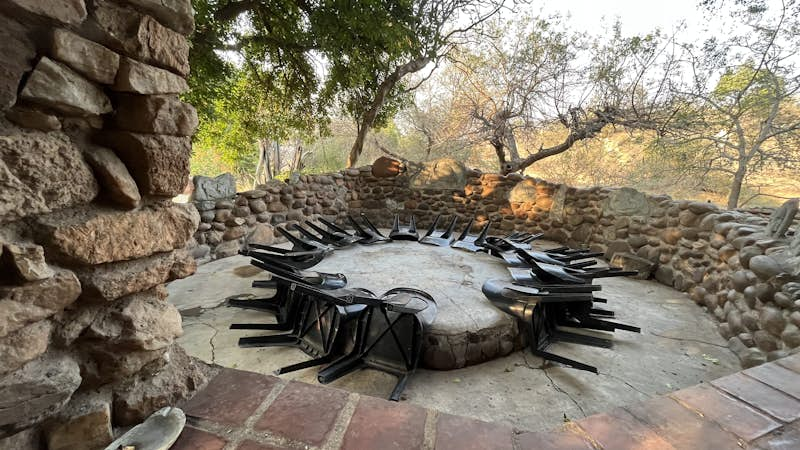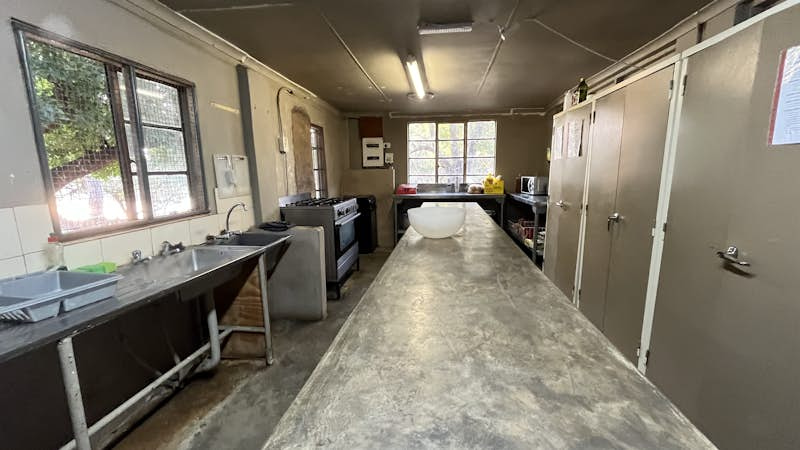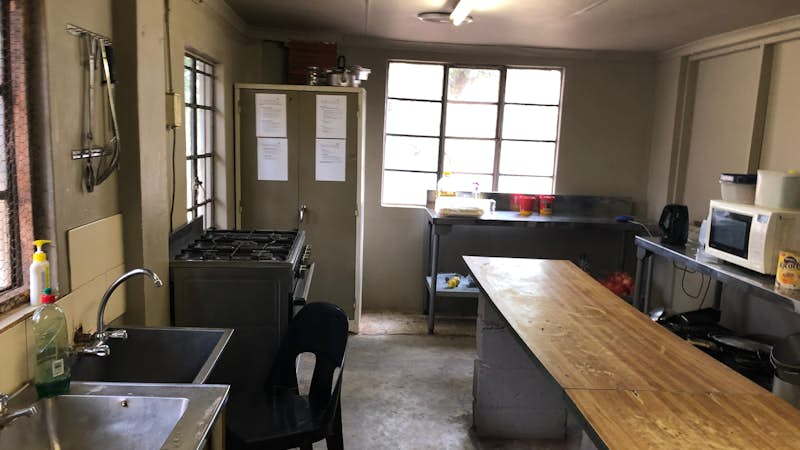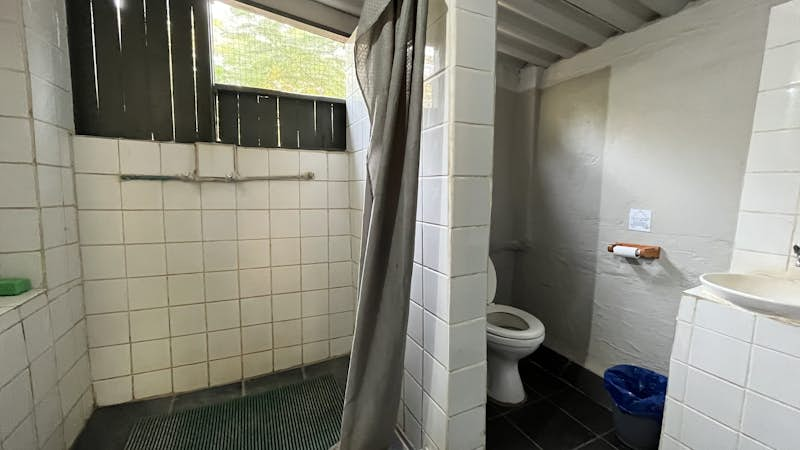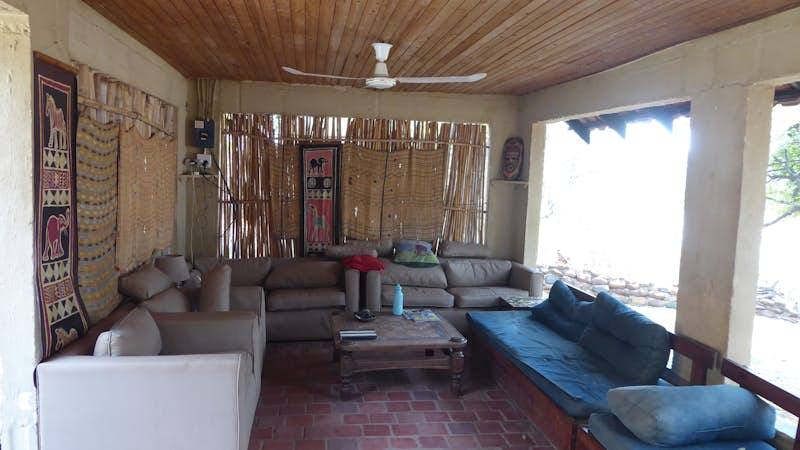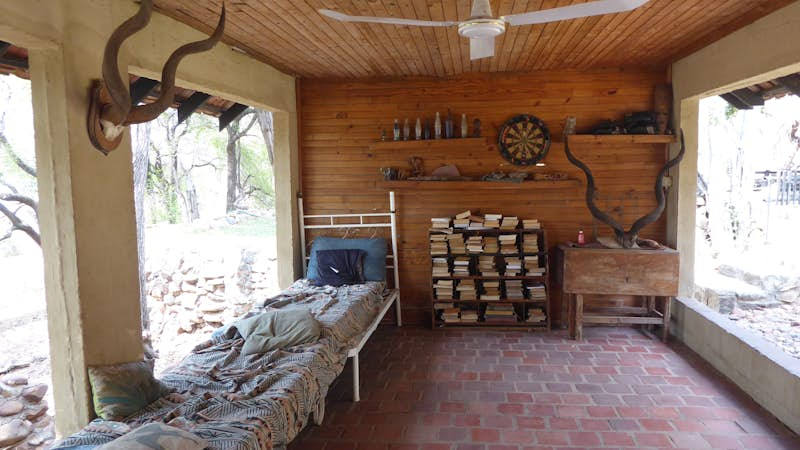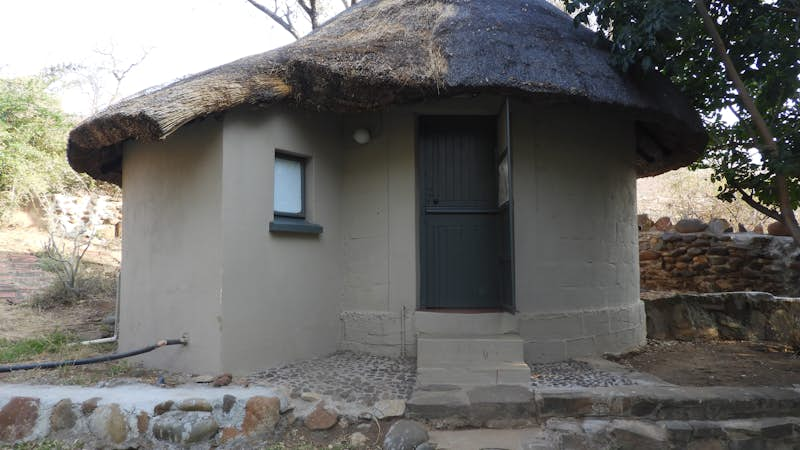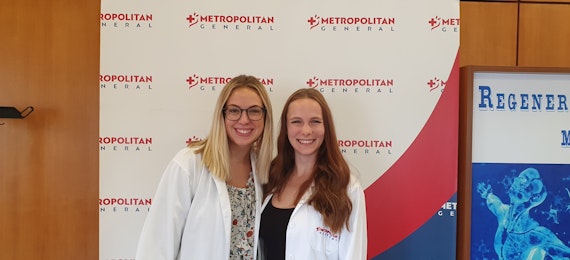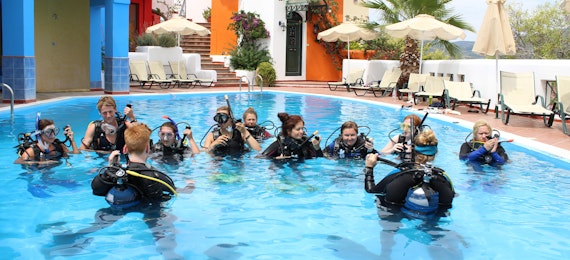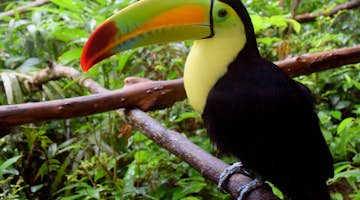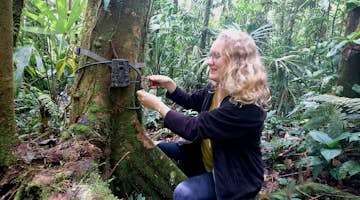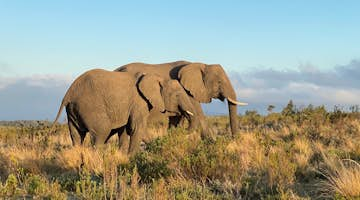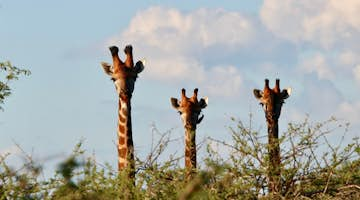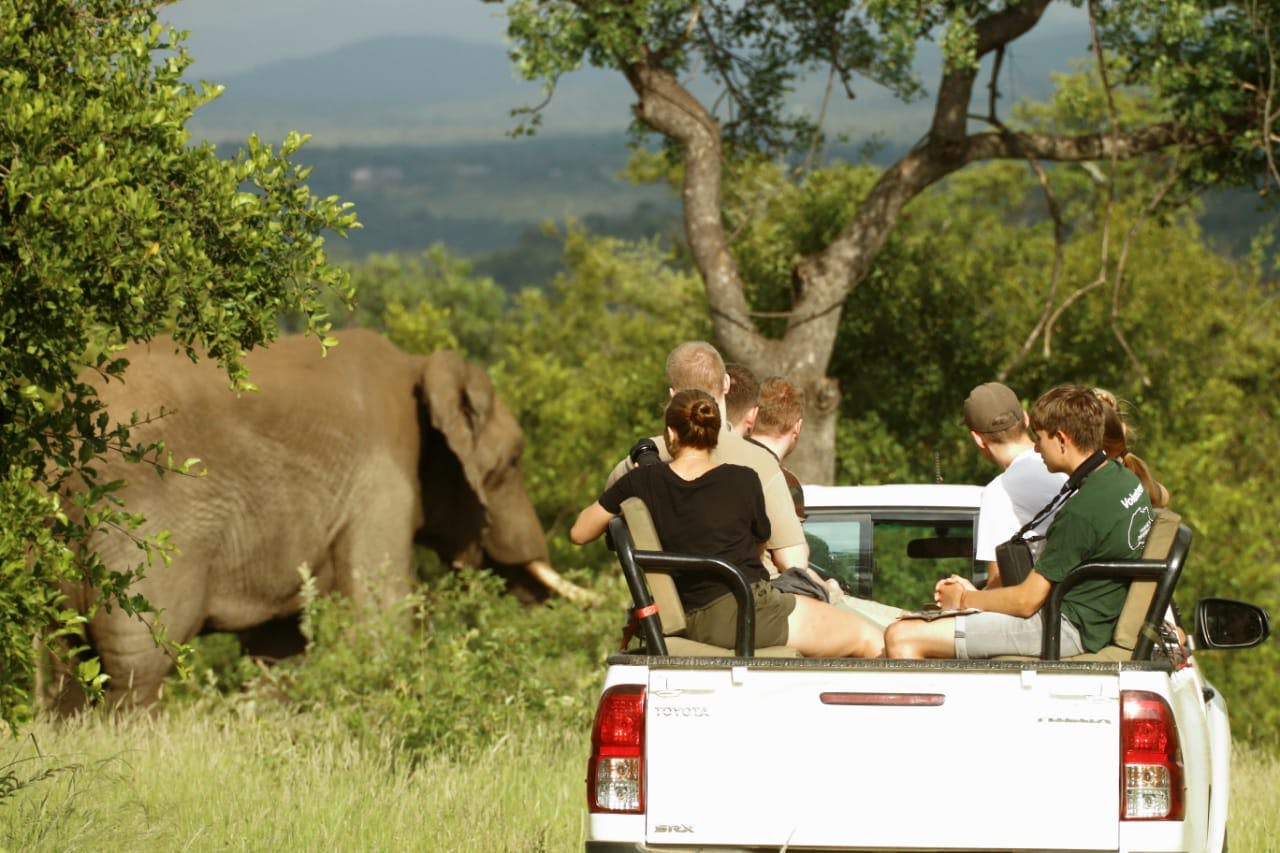
Reserve Management & Research Internships: Intern abroad in Kruger Park, South Africa
The world-renowned Kruger National Park (KNP) offers a wildlife experience that ranks with the best in Africa. The Reserve Management & Research internship in Balule, Greater Kruger Park, combines reserve management experience with specialized project activities. This dynamic approach provides interns with a real-world opportunity to gain scientific mentorship and learn practical new skills related to fieldwork, data and ecology.
What to expect from your Reserve Management & Research internship:
- Experience life living on an operational game reserve
- Learn from experienced reserve managers and scientists
- Contribute to conservation efforts that aid some of the world’s most spectacular wildlife
Your internship abroad host organization:
- Balule Game Reserve, Greater Kruger Park
Internship details
The Reserve Management & Research internship in Balule, Greater Kruger Park, combines reserve management experience with specialized project activities. This dynamic approach provides interns with a real-world opportunity to gain scientific mentorship and learn practical new skills related to fieldwork, data and ecology.
This is an in-country internship, with accommodation and meals provided. Click here to view remote Environmental & Marine Sciences internships, which you can undertake from home.
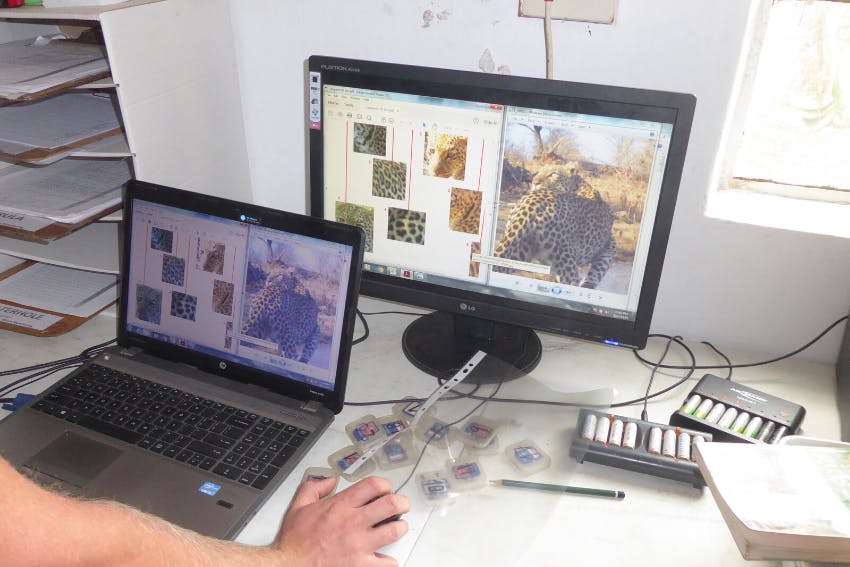
This location of this internship, at Balule, Greater Kruger Park, provides a coveted wildlife experience, which could only be described as “once in a lifetime”. Base camp is located right on the Olifants River, where you have a prime view to spy the resident wildlife. Interns work closely with resident Fields Guides and a dedicated Field Training Coordinator, to assist with daily reserve management priorities, while tackling an especially assigned research project. This is a hands-on internship in Africa, where you should come prepared to gain practical fieldwork experience, in one of Africa’s most renowned environments.
Reserve Management activities
A day-to-day component of this internship is related to reserve management activities, which you contribute to alongside wildlife conservation volunteers. These activities provide general insight into conservation priorities. You can expect to cover an introductory period at the beginning of your program, where resident Field Guides will teach you about life on the reserve. This involves learning about best practices for reserve management, basic bush ecology training, and gaining an overall understanding of how your efforts contribute to long-term goals and conservation priorities. Tasks are related to:
- Bush craft (i.e. learning about animal identification and behavior, dealing with potentially dangerous game, orientation and navigation techniques, and basic bush skills for health and safety).
- Game drives and camera trapping (i.e. monitoring of rare and endangered species, location and mapping of injured animals by vehicle patrols, vulture nest monitoring, etc).
- Reserve management general labor (i.e. assisting with road maintenance, assisting with bush and alien plant clearing, helping with erosion control measures, fence line patrols, disaster management strategies to mitigate drought, flooding, storms, wildfires, etc).
- Vegetation sampling and habitat assessments.
- Assisting with long term biodiversity surveys.
It’s important to keep in mind that reserve management activities include manual labor. The type of conservation activities you may be involved with is very dependent on dynamic variables, such as weather and environmental conditions, seasonality, animal behavior, etc. All interns need to be flexible with the kind of reserve management activities you’ll be involved with. The above list provides a guide but activities are seasonal and day-to-day itineraries will be determined by the on-site Field Guides, who will plan according to conservation priorities, weather conditions, and other factors.
Specialized project activities, data collection and research
In addition to the general Reserve Management tasks, interns receive support from a dedicated (remote) Field Training Coordinator to complete specific activities and data collection tasks. For this, each intern is assigned a project that they must complete during their internship (over a minimum duration requirement of at least 4 weeks). These project activities contribute to research, provide interns access to scientific mentorship, and the opportunity to gain practical new skills related to data and ecology. In all cases, interns will be expected to produce findings that they will present. The presentation will be graded by the Training Manager (pass/fail). Interns are welcome to state their preferences for their desired project. Project options can include, but might not be limited to:
1. Predator Dynamics Project
Aim: To create association and overlap charts and maps for a season, using predators, as well as main prey species. Interns utilize “WildLog” to produce maps and create a project about temporal and spatial overlap and competition. The maps that are developed will be presented, results and findings will be compiled and discussed.
2. Predator ID Project
Aim: To create and update identification kits for individual animals of the major predator species. Using Wildlog, individual animals will be given their own unique “creature ID” with the descriptions of identifying characteristics and links to the photo ID document. The document will use photos from WildLog with the identifying characteristics circled and described from the various angles (left, right, hind, front, head, legs, tail etc). The intern will need to create their report and include detailed summaries of each individual (sex, age, behavior, territory, name, identifying characteristics, missing sides for identification, number of times seen, most common locations, etc).
3. Bird Point Count (BPC) Project
Aim: To create and update seasonal bird charts of sightings, and counts per species and feeding guild, as well as species lists and interesting sightings outside of BPCs. Interns will ensure that data entry is up to date and correct and will access the spreadsheets used for quarterly newsletters, where the graphs auto update. Interns will create a report and presentation showing current graphs and compare them to historical data.
4. Game Transect Project
Aim: The aim of this is to create and update the trend analysis for the game transect data. Interns will ensure that data entry for Game Transects are upto-date and correct. They will update data and reports which describe current conditions, while comparing them to historical trends.
5. Elephant & Big Tree Mitigation
Aim: The management of Elephants in closed ecosystems is a complex and often emotional topic, what is clear is that areas with increased population densities pose challenges related to the density of Elephant populations. This study is aimed at identifying methods of protection for critical tree species that come under threat from the Elephant population. Habitat impact can be managed on a large-scale by relocating Elephants, closing water sources or fencing off areas. However, in areas where this is not possible, the protection of flagship trees on an intensive small-scale basis is crucial to protecting the habitat for all species. Some of the methods employed for this include the manufacture of concrete pyramids which are deployed around the base of trees, wire mesh wrapping to protect the bark of these trees or application of various deterrents.
Typical Schedule
-
Mostly full-time Monday to Friday, depending on weather, season and research requirements. Interns may be required to assist research outside normal work hours or on weekends on arrangement.
What are the career benefits of interning abroad as a Reserve Management & Research Intern?
Reserve Management & Research interns learn from a qualified and experienced supervisor, and can be involved in:
-
Reserve operations and management
-
Data collection
-
Bush ecology
-
Camera trapping
-
Conducting surveys
-
Learn about animal health and behavior in the wild
-
Informing conservation activities
-
Reserve maintenance
Professional development opportunities:
-
Experience wildlife in a world-renowned reserve
-
Take part in real life reserve management tasks
-
Undertaking a research project based on collected and supplied data
-
Gain practical skills and boost your employability, with guidance from Intern Abroad HQ’s Experiential Learning Curriculum to support your learning and cultural intelligence
Are you eligible for this internship?
Submit a free application so we can confirm your eligibility and check availability for your preferred dates.
Not sure which program to join?
South Africa photo gallery
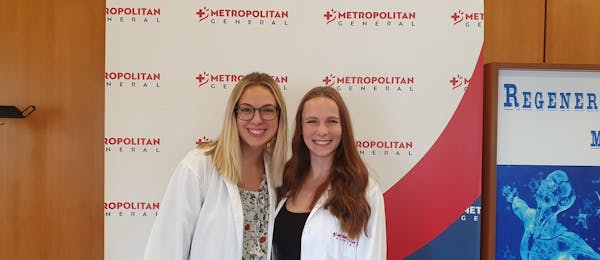
Academic credit available for all internships
Get course credit from your college or university while completing your internship abroad or a remote internship program. It's a great way to meet your academic requirements and gain valuable experience at the same time.
Learn about course creditProgram fees
Applying for our Reserve Management & Research Internship is completely free! The support package covers the assistance we provide in finding your internship and arranging your living accommodations in your host country, ensuring you thrive during your program.
Please note that a deposit of US$499 is required to confirm your place. The remaining balance (minus your initial US$499 deposit) is due at least 60 days before your internship start date.
Duration |
Program Fee (USD) |
|---|---|
| 4 weeks | $2,909 Equivalent to $103 /day |
| 6 weeks | $3,834 Equivalent to $91 /day |
| 8 weeks | $4,734 Equivalent to $84 /day |
| 10 weeks | $5,689 Equivalent to $81 /day |
| 12 weeks | $6,589 Equivalent to $78 /day |
- Airport pick-up
- Meals
- Accommodation
- 24/7 in-country support
- Program orientation
- Dedicated support before, during, and after your internship
- In-country guidance for social and tourist activities
- Sourcing and securing your internship placement
- Personalization of your internship plan
- Coaching from your supervisor
- Documented portfolio of your experiential learnings
- Academic credit facilitation
- International reference letter
- Certificate of Internship Completion
- Visa (if required), flights, travel insurance (mandatory), vaccinations, criminal background check
- Personal spending money for snacks, drinks, public transport, laundry, and leisure activities during your free time.
Activities and tourism
This internship is located in a rural area, where there are limited social activities and attractions. Distances between towns are great and public transport is very limited. The typical work schedules on these programs keep interns busy throughout the week - and sometimes over the weekends too - but shorter work days can sometimes occur if weather conditions are not suitable for various activities. We recommend that interns bring ample reading material, card / board games, iPods, and similar personal entertainment items, for periods when there is “downtime”. If you feel the need to be in or near a big city, then these programs might not be for you. But if you have a passion for the great outdoors, you’ll have the experience of a lifetime!
This being said, the nearby town of Hoedspruit (located 50 kilometers away, via mostly unpaved road) is a very popular tourist stop. There are many restaurants, pubs, shops and supermarkets. Camp supplies and groceries are bought in town and interns are welcome to join these shopping trips, by arrangement with the on-site Field Staff. (These trips also provide a good opportunity to topup your prepaid phone data).
Arrival and Orientation
Reserve Management internships in South Africa begin on the first and third Monday of the month. This internship has limited capacity and we encourage interns to plan in advance, to secure your preferred internship dates. Interns may choose to spend a minimum of 4 weeks, up to a maximum of 12 weeks.
Airport pick up, drop off and accommodation are included in the Program Fee. The accommodation is covered from the Monday night of your start date - interns are required to arrive on their start date and are asked not to book flights until your placement has first been confirmed. Specific instructions will then be provided for arrival and departure logistics.
O.R. Tambo Airport in Johannesburg (JNB) is the typical international gateway into South Africa, from where interns need to connect onto a further domestic flight to Hoedspruit Airport (HDS), which is located adjacent to the Kruger National Park (and just outside the town of Hoedspruit).
Interns are met on arrival at Hoedspruit Airport and transferred to the reserve, departing as one group. Upon arrival to the site, interns will be welcomed and receive guidance in regard to orientation, safety, and getting settled in.
The last night of the accommodation is the Sunday night of your final week. Departing interns are provided return transportation into Hoedspruit, for departure from the Hoedspruit Airport, on the first and third Monday of the month.
Check what's required to visit South Africa
Check out the widget below to learn about the visa requirements for the Reserve Management & Research internship in South Africa, based on your country of residence.
Accommodation and WiFi
Interns are accommodated in dormitory style accommodation at Rusermi Camp, located within Kruger National Park’s Balule Game Reserve. The camp is located about 50 kilometers from Hoedspruit and runs beside the Olifants River. The laidback site has a true safari feel - it is not uncommon to see African wildlife grazing throughout the day. There are sweeping views over the Olifants River and distant Drakensberg mountains, with large trees providing ample shade from the afternoon heat.
Sleeping quarters are provided for program participants (volunteers and interns). The rooms are equipped with bunk beds, mattresses and sheets. Interns must bring their own towels and sleeping bags. Expect to share the rooms with one to seven others. Efforts are always made to accommodate genders separately. However, same-sex dormitories cannot be guaranteed, as this depends on the gender ratio of program participants who are on camp at any given time. A private room “accommodation upgrade” can be booked in advance - subject to availability.
Camp living is basic but comfortable. Bathrooms are separate and have warm and cold running water, as well as standard toilet facilities. There is an outside dining area and braai (BBQ) area (known as a ‘lapa’) where interns enjoy their meals and socialize in the evenings, as well as an outside swimming pool and open-air lounge. Local Field Staff reside on-site to provide supervision and support. Interns share responsibility for daily cleaning duties and are expected to maintain cordial relationships with fellow program participants and staff.
The facilities include a desktop computer, which is used for data entry. It can be used by arrangement with the Camp Manager to send basic emails. However, it is highly recommended that interns bring their own laptop, mobile phone or other device, to connect to the accommodation WiFi. Please note that there will be a charge paid directly to the camp if the intern loses their keys or breaks any items.
There is electricity available at all of the program accommodation camps, so mobile phones, cameras, iPods and laptops can be easily charged. In South Africa, it’s possible that load shedding can occur. This means that power companies may occasionally reduce electricity consumption by temporarily switching off the power supply to customers. Many parts of South Africa currently experience load shedding. This should not be any cause for concern - just bear it in mind and ensure you keep your devices charged.
Remember the reserve is located in a rural area. There are limited social activities and attractions in the area and is not ideal for interns that need to be in or near a big city! It is recommended that interns bring ample reading material, playing cards, board games, iPods and similar items to entertain themselves during down time on the program. Hoedspruit is a very popular tourist stopover and has many restaurants, pubs, shops and supermarkets. Camp supplies and groceries are bought in town every 1-2 weeks and interns are welcome to join these shopping trips by arrangement with the Camp Manager.
Meals
Meals are included in the Program Fee for this internship. All meals are prepared by interns themselves, from groceries and food provided (the program fee covers the cost of the food). Interns will be scheduled to assist with cooking and cleaning duties as a group effort. This schedule, along with any other important camp duties, is coordinated at the orientation.
Vegetarian and other dietary requirements must be communicated in advance, so that we can cater for any special meals. There is an additional weekly surcharge if a gluten-free, dairy-free, vegetarian or vegan diet is requested. This is in order to provide specialty grocery items, which are often more expensive in South Africa (i.e. soy milk, gluten free bread/pasta, protein supplements, etc) and may need to be ordered online, in advance, if they’re not available at the local stores. Once you have confirmed your internship participation, you can book and pay for this weekly surcharge in advance.
Interns with special dietary requirements and/or allergies should also come prepared to assist with their own meal preparation. Bear in mind that local restaurants/cafes are limited, so they will also have limited dairy-free / gluten-free / vegan menus.
The seasons in Kruger National Park vary from very hot summers to mild and temperate winters. The subtropical climate has hot rainy summers starting in October and ending around March. The summer rains transform the park into a lush flowering paradise, but the increased foliage does make animals harder to see. Traditionally, the best game viewing is in winter when vegetation becomes sparse and water is restricted to rivers and water holes. (Please be aware that winter nights can be extremely cold, even though this is Africa!) Remember that Kruger is an “open” system and there is no guarantee that you will get to see the animal that you want to see. It’s not a zoo! The dry season is during the winter months from April to September and is extremely pleasant with warm dry days and cold nights.
What recent Reserve Management & Research interns said about their experience
I enjoyed my internship thoroughly as I accomplished and learned a lot. I got to do unique research of a kind I had not done before in a new place. The program itself has been an amazing experience and the research project has a special significance for me.
This internship far exceeded my experience and I learned interesting things like reading animal tracks and signs. It's exciting and I've been kept on my toes as you never know which wild animal you'd see and that makes it interesting!
This program was the most amazing trip I’ve ever taken. My stay in South Africa went way above my expectations. I received more value than I expected. The program was always very organized and we knew what was expected of us. I learned a lot about nature and wildlife. I think one of the most rewarding parts of my stay is how much I learned about the bush. One of the highlights of my stay was seeing the leopard Matemba and the local pride of lions. Meeting new people and making lifelong friends was also rewarding. The quality and quantity of food was very good. Even with my gluten free diet I always had enough food. The camp was always in very good shape and clean. The advice I'd give to others who are considering this program is to stay as long as you can because it’s definitely worth it. I would also tell them to enjoy every minute of their stay here because it goes by so fast!
For someone passionate about zoology, visiting South Africa to learn is a dream come true. This goal means a lot to me because being able to gain first-hand field experience within one of the best National Parks in the world - while also working toward conservation goals related to Africa’s “Big Five” - is a milestone in my life. No other organization anywhere in the world would have given me such a relevant platform to work and gain experience with the Big Five and thereby the relevance of this internship is immense to me. I have learnt the techniques for changing the batteries of the camera traps, changing their data cards, and the data entry techniques, from the field notes to the data matrix of the computer software program. I am also confident about using the GPS during the transect study and taking field notes during field trips. This internship has gifted me with adventure. The personal gain of this internship for me has been my development into a more confident and committed human being. Learning various conservation techniques with minimum resources and self-guidance has provided me with personal and professional development opportunities to explore my innovative ideas and resourcefulness. I will cherish this memory of adventure for the rest of my life. This internship project has also taught me the important value of acceptance, which has indeed changed the philosophy of my life.
To read all reviews, visit our reviews page.
